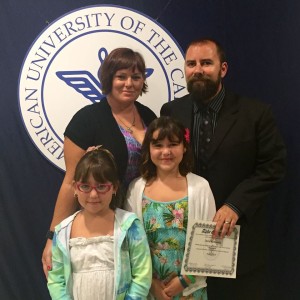
David Kenneally and his family — fellow AUC’ers! (…and readers of our family blog)
Recently, I received a private message on Facebook from an AUC med student, David Kenneally, who is about two years behind Carina. I have yet to meet him in person, but he found this blog back when we (the Crookstons and Michelle) were all on the island, and apparently Carina’s journey helped convince him to not give up on his medical school dreams. He is a non-traditional student, and has older kids like us.
We’ve kept in touch as he and his family have been on the island. And now that his time there is wrapping up, he politely requested more blog posts about life as an AUC student after-the-island.
He made the comment, “It’s interesting: most blogs leave off after the island. You’ll get a few posts afterwards, but the world of clinicals is very opaque.”
And to be honest, I recall thinking the exact same thing when we were there. What happens next was this big giant mystery.
So, here we go! In one post, I’m going to try and share ideas, insights, and thoughts about…
- Clinical rotations with AUC in general
- Clinical rotations in the Detroit area
- Core rotations in the U.K.
- Family life in the Detroit area
- Prepping for the match
- And a little about our family in general
Thanks in advance for being here! And please feel free to ask about anything I didn’t cover.
Moving Around? Or Staying Put?
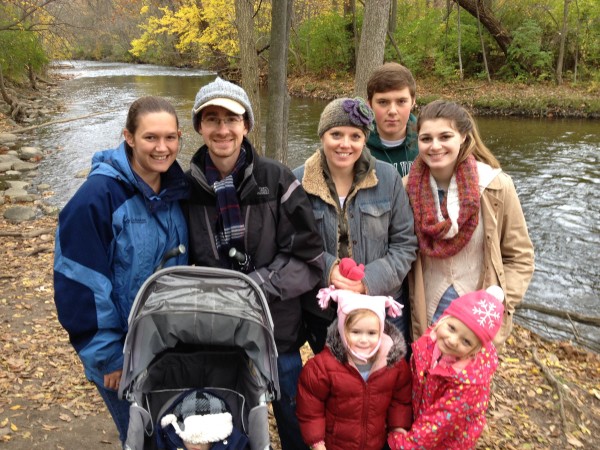
We first met Thaddeus, Melissa, and their kids on the island. They did cores in the UK, then electives in Detroit. He is now a Radiology resident at a top hospital in Atlanta.
AUC has affiliations with hospitals all over the country where their students can do rotations. But, there are only a few places where a family can go and do ALL of their rotations (both cores and electives) in one place, without having to move.
In my own very non-scientific observations, it seems that AUC is inclined to play favorites to students who are married and have kids, and will give them precedence over single students in allowing them to do all of their rotations in one place. They did that for us, and for other AUC families with children who are here (or were here) in Michigan doing rotations as well. Meanwhile, most of the single students we know (or married students with no children) have had to hop around the country for their rotations.
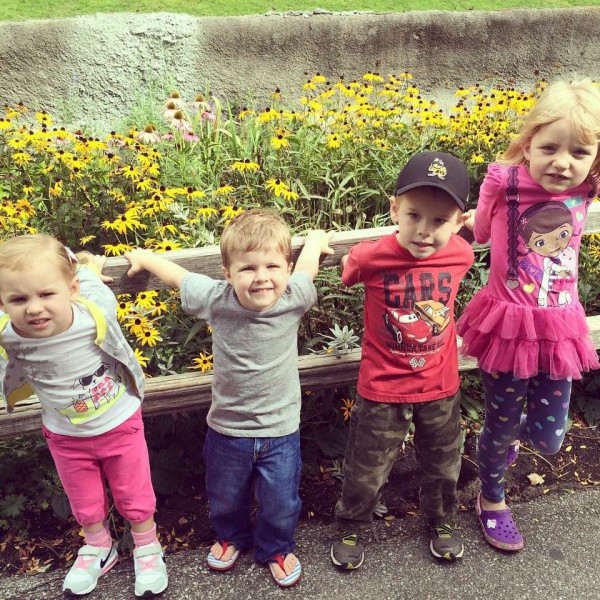
Piper hanging out with the children of David & Jessica, and Gary & Ashley, two other AUC families who came to the Detroit area to do all of their rotations in one place. (Gary & Ashley did their cores in the U.K.)
New York City is one of the places where AUC students can do all their rotations without moving, and we took a hard look at making that work. The idea of living in Manhattan for two years certainly tickled the adventurous side of me! But it came down to a simple question of cost. NYC is crazy expensive, and we would have ended up living in an apartment that was smaller than the one we had on St. Martin. And even then, we would have been apartment-poor.
Michigan, and in particular the greater Detroit area is another place students can do all rotations in one place. And while we didn’t (originally) relish the idea of moving to Detroit, it again came down to a simple cost-of-living decision. So we focused our attention on Detroit.
But… Detroit? Really?

Snap shot of an all-too-typical building in Detroit, taken from the car as we drove by.
Not long after we moved here to the Detroit area, I had a Minnesota friend ask me, “How’s life in hell?”
My response was, “I wouldn’t know! It’s awesome here!”

A t-shirt in a shop in Ann Arbor
But in all fairness, I STRONGLY resisted moving here, at least at first. I mean, who on earth wants to live in Detroit?
My mistake was in thinking that the entire Detroit area is like the city of Detroit itself. The truth is, you don’t need to go very far outside of Detroit to find areas that are an absolute delight to live in! We came here in the summer of 2014, and it’s now July of 2016. So it’s been a little over two years. And we love it! So much so that we bought a house and plan to stick around for a while.
School & Church For the Kids
One of the things that convinced us to come to Michigan is the research Carina did before moving here on the school districts. We knew she would do most of her rotations at St. John’s Providence Hospital in Southfield, and we found that within a very reasonable commute from Southfield, there are school districts that are world class. I mean, they are still American public schools, yet as far as public schools go, these districts are ranked as some of the very best in the nation.
Our kids are in the Walled Lake School District. After having been here for just one school year, Andi and Tanner both informed us that under no circumstances did they want to move away from their schools. And as parents, we are happy with the degree to which our kids are being pushed and challenged academically.
Also, our faith as Mormons is a huge part of our life. One of the reasons we opted to live where we did is because the congregation here has a strong and vibrant youth program. Our decision to be a part of the Walled Lake ward has proven to be one the best decisions we’ve made!
Cultural Diversity
One of the things we have found, but did not expect, about living here is the incredibly rich diversity that surrounds us. Anywhere we go (grocery store, gym, for a walk on the trails near our home) we hear a multitude of languages. The predominant cultures that are represented in the area are Russian, Chaldean, and Hebrew. All three of our kids attend school with children from these demographics, and more.
Last year for pre-school, Piper attended the Jewish Community Center. It was a delightful year for her in a program we all loved, with fantastic teachers who we miss. Piper will still occasionally teach us new words in Hebrew.
Plenty to Do!
We have not yet even begun to tap into all of the family-friendly activities that the Detroit area has to offer. We have been to a couple Tiger’s baseball games, and we watched Michigan totally demolish the BYU football team.
We have found that we love downtown Ann Arbor, which is only a half hour away from us. And just a few weeks ago, the kids went with Grandma & Grandpa Crookston to the Henry Ford Museum, which I hear is fantastic. I have also heard that the Detroit Zoo is great too, although we’ve not yet made it there. And, Andi went with Carina on a field trip to the Detroit Institute of Arts, and they came back raving about it!
If you decide to move to the area, you will never lack for things to do with your kids!
Clinical Rotations…
Turning our attention now to topics specific to AUC…Working with your AUC Coordinator
I’ll be blunt. As you go through your rotations, you are going to become frustrated and angry. Every AUC student I have ever spoken with has expressed some degree of angst and pain in trying to schedule rotations with their coordinator. I think these people must be seriously overworked and underpaid. Remember these tips when working with them:
- OVER Communicate! Never assume that because your coordinator said they would do something, that it will get done. After every verbal phone conversation, followup with an email. Send them notes from the conversation you just had. This puts what they promised in writing so you have some recourse if it doesn’t happen. And if you don’t hear back from them when you expect to, get on that phone and be the squeaky wheel. And after that conversation, send another email.
- BE NICE! Carina excels at this. Despite all the problems she had with her coordinators, she never lost her cool, yelled, or became rude. She WAS firm at times, and told them politely when something wasn’t acceptable. “I’m sorry, but this just isn’t acceptable. We are going to have to do better.” That’s a phrase she used multiple times with them, always in a calm, polite voice.
- Make Your Wants Known, Early and Often. As soon as you can, take STEP 1 and then you can let them know where you want to rotate. First come, first serve. Communicate clearly if you are fine with moving around the country, or if you need to stay put. If they give you a schedule you can’t accommodate without seriously disrupting your life, let them know and tell them this isn’t going to work for you. Tell. Don’t ask. But also, be nice!
- Don’t Be Afraid to Go Over Their Head. On one occasion, the performance of Carina’s coordinator was so unprofessional and unacceptable, that she had no choice but to escalate the issue to a higher authority. The issue was then soon resolved, and not long after, she got a new coordinator. Don’t use this as a first resort. If too many students do this for trivial reasons, then it will lose it’s effectiveness. But if it becomes necessary, then know that it’s an option.
I don’t mean to paint too negative of a picture. In the end, Carina always managed to get what she needed from her coordinators. And I am very hopeful that AUC has made improvements in this office, and will continue to do so. Just be aware going into rotations that some mix-ups and frustrations may happen, and if they do, it isn’t personal.
Keep the big-picture in mind: You ARE going to become a doctor!
Providence Hospital
Carina did almost the majority of her rotations at St. John’s Providence Hospital in Southfield. She spent a LOT of time there as a third and fourth year med student, and came to think of it as her home away from home. She grew to love it, and to think of the people she worked with (attendings, residents, and nurses) as friends and surrogate family.
She also spent some time, depending on the rotation, at St. John’s Providence in Novi as well, which is a beautiful, new facility in an upscale part of town. Novi is a nice area.
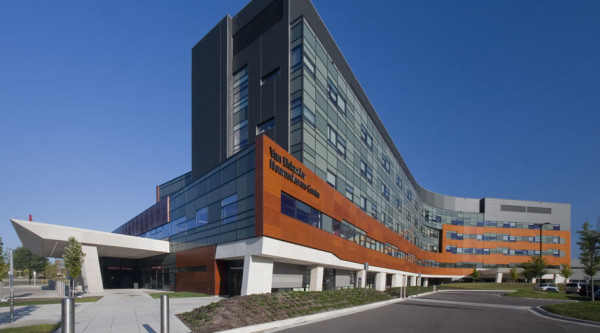
St. John’s Providence Hospital in Novi
There are two other hospitals in the area that are affiliated with AUC as well. Crittenton Hospital Medical Center in Rochester Hills, and St. John’s in Detroit. And there’s also a small multitude of satellite hospitals, clinics, and even private practices where students rotate through as well. AUC’s reach, influence, and relationships in this area are deep and vast.
Core Rotations:
This is a quick overview of the locations where Carina did her core rotations, with a few editorial comments.
- Pediatrics:
- Outpatient: Dr James Landers Gross Pointe (Awesome experience and such a wonderful doctor!)
- NICU: Providence, Southfield
- Peds inpatient – Providence, Novi
- General Surgery:
- Providence, Southfield. (Not a great experience. If you can do surgery elsewhere, do it.)
- Psychiatry:
- Providence, Southfield
- OBGYN:
- Providence Southfield and Novi. (Loved this! Great experience.)
- Internal Medicine:
- Inpatient – Providence Southfield
- Outpatient – Providence Clinic, Dr Allen Ghassan (Fantastic doctor, wonderful to work with!)
Overall, Carina had extremely positive feedback about all of her core rotations at Southfield and Novi. Surgery was an exception, yet she knew she didn’t want to go into surgery, so she was willing to overlook it. That aside, she would strongly recommend St. John’s Providence as an excellent hospital system for any AUC student looking for a place to do their rotations.
Elective Rotations: AUC’s Options, or Forging your Own Path
While AUC has enough hospitals and connections to set you up with plenty of elective rotations, it’s important to remember:
You are NOT limited to the elective rotations that AUC offers!!!
Three of the elective rotations that Carina did, she set up on her own, outside of the AUC network. It was extra work on her part, and required a large amount of hand-holding and patience while working with her coordinators at AUC to do the paperwork needed for the rotations to be approved. But it was worth it.
Greenbook…
If you want to forge your own path and find your own hospitals for elective rotations, just make sure they are Greenbook. Meaning, the hospital is a teaching hospital which has an accredited residency or fellowship in the specialty for which you want to rotate.
St. Cloud Hospital in Minnesota…
Originally, AUC was planning to send Carina to NYC for a couple of months for some electives, because they didn’t have any spots for her in Michigan that fit her timeline. But, we were done doing the family separation thing. So instead, after finishing Step 1 and before starting cores, she used some connections at the hospital in St. Cloud, Minnesota (our home town), and arranged two elective rotations. One in Radiology, and another in Family Medicine. The hospital was willing to work with her, and she acted as the middleman between the hospital and AUC to get the paperwork done and make it official.
We already had some family friends who worked as physicians at the hospital, and who played a key role in making this happen. Plus, Carina had done a pre-med shadowing program with the hospital while an under-grad, so they already knew her, and had her background-check on file.
But even if you don’t have these kinds of inroads at a hospital where you would like to do an elective rotation… It still never hurts to ask!
Case in point:
University of Michigan…
The third elective rotation that Carina did outside of the ones offered by AUC was Radiation Oncology at the University of Michigan. For this one, she just simply asked, and they said yes.
A rad-onc physician from the U of M was giving a lecture one day at Providence Hospital, and after the lecture, Carina approached him, thanked him for the lecture, and told him she would like to do an elective rotation with him. He said, “Ok, let’s make it happen!”
Other than these three, all of the other elective rotations she did were normal AUC slots coordinated and arranged by the school, and were done in the St. John’s Providence system. Her experience in all three were extremely positive.
- Cardiology
- Hematology Oncology
- Neurology
What About England?
AUC students have the option to do core rotations in the United Kingdom. Personally, because of potential visa complications, and because my employer would not allow me to work for them outside of the company, we decided not to pressure this option. But, we know three families (with children) who did, and they loved it! The pro and con lists I’m offering here are not exhaustive, and are strictly what I’ve heard reported by a small sampling of AUC students who did rotations in the UK.Pro’s:
- You live in England! So much culture right at your feet. The spouses I know spent much of their time traveling.
- Core rotation hours are much more family friendly. We hardly ever saw Carina during her months on the surgical rotation at Providence Hospital. But in chatting with fellow students who did this rotation in the UK, their hours were a cake-walk.
- Gain insight into how other health care systems operate.
- Lot’s of hands-on learning.
- Low attending to student ratios.
- Complete all your cores in one area. No moving around.
- International experience never hurts. Some AUC students report that being able to talk about doing rotations in the UK made a good impression when interviewing for residency.
Con’s:
- Many AUC students who rotate in Michigan end up matching in hospitals where they rotated. The relationships you build with attending physicians and with hospitals in the UK probably won’t help you when it comes time to match. Or, another way of saying this is: You have a better chance at matching in a hospital where you actually did rotations.
- The more lax hours in the UK hospitals may not give you a realistic insight into what practicing in these specialties is like in the US.
Ultimately, going to the UK is a personal choice. The families I know who went there had lots of positive things to say about the experience. Career wise, just make sure it’s the best choice for you.
AUC Students & Michigan Based Residency Programs
AUC students have a strong presence in the medical community here, and all of the local hospital systems know them, even the hospitals where they don’t do rotations. Many of the residency programs in the area have accepted them as residents. It is fairly common for AUC students to come here for rotations, and then stay for residency as well. That’s exactly what happened to us, and we also know an OB/GYN and a general surgeon who did the same thing.
Residency Application & The Match
The process of prepping for, applying for, and interviewing for residency is too complex and involved to do it any kind of justice here. However, thanks to Thaddeus and Mellisa Hollingsworth, I can pass along an invaluable tip. And this tip is really all you need to know.
Get the book “The Successful Match: 200 Rules to Succeed in the Residency Match”. Read it. Do EVERYTHING that it tells you to do, EXACTLY how it tells you to do it. It’s like the world’s best insider cheat-sheet for totally slaying the residency application process. If you digest this book, and follow the instructions it gives you, you will greatly increase the number of interview invitations, and probably end up at one of your top choices.
Don’t wait to get this book. Start reading it as soon as you start clinical rotations, because it covers things like how to ask for letters of recommendations from the attending docs with whom you rotate, which is something you will want to ask for as you are rotating with them, and not after the fact.
The process of getting ready for the match really begins when you are done with Step 1, and when you start rotations. It is a long, involved, complex, frustrating process, and you will need all the help you can get.
Buy the book!
Final Thoughts…
We are glad we came to Michigan for rotations, and we are glad Carina accepted a residency in Family Medicine. We love the area, and Carina is enjoying her residency. It still takes her by surprise when people call her “Doctor”, but she’ll get used to it.
Clinical rotations are fun! It’s SO much better than sitting in classrooms on the island and taking block exams. If you decide to come to the Detroit area to do your rotations, you won’t regret the decision. AUC students are well known here, and well respected. Your experience will be positive.
Study hard. Work hard. And we wish you much success!

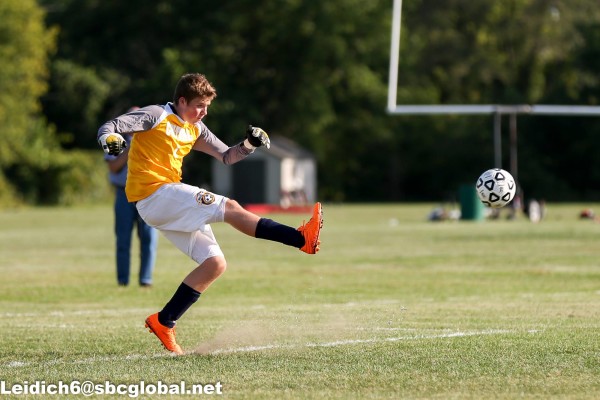
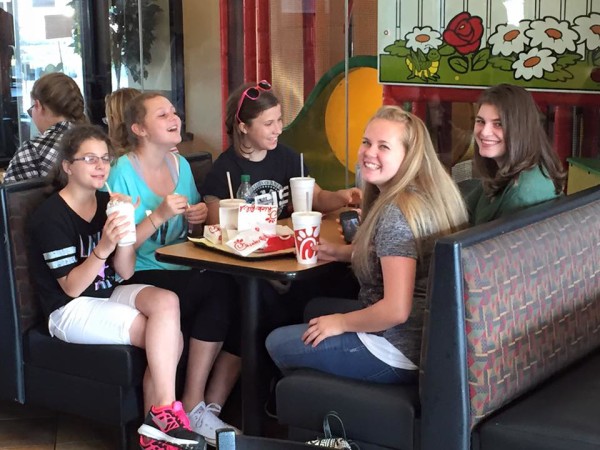
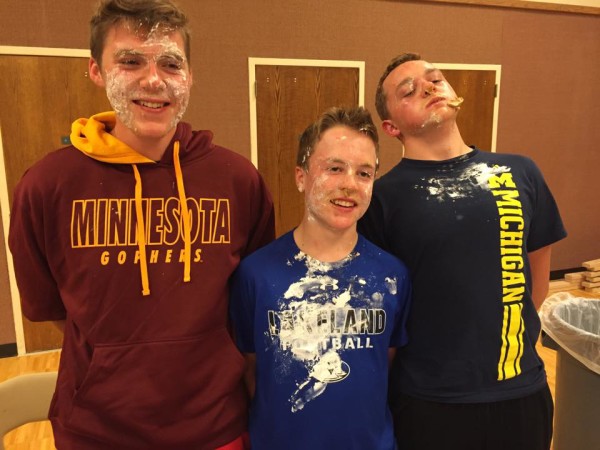
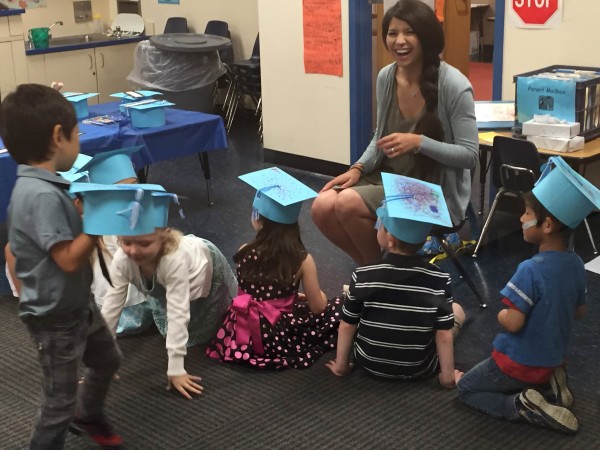
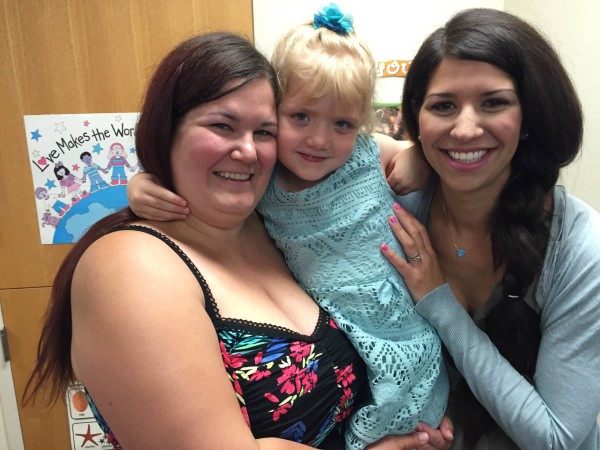
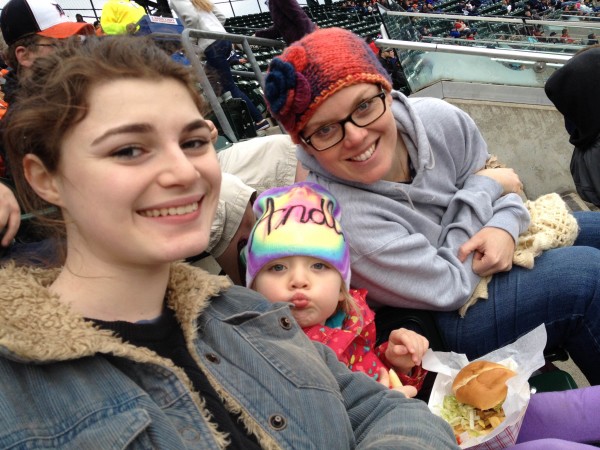
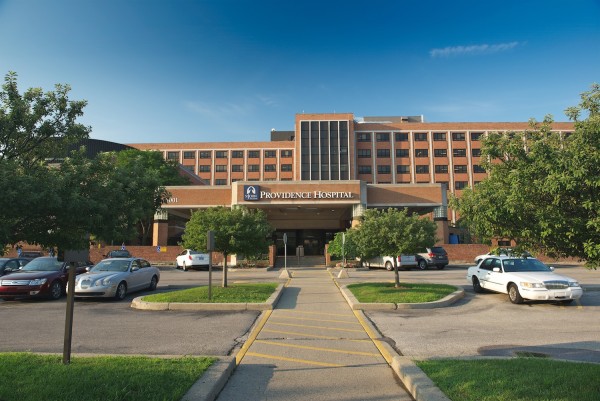
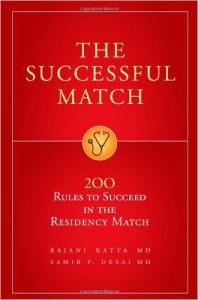
Hello!
My name is Josh, my wife Sabrina is currently in the interview process with AUC and has already been accepted to Saba. I had a phone discussion with a relative (aunt) of mine in Michigan who oversees a few hospitals under Mercy. She bluntly told me, after a discussion with an administrator friend of hers who used to run the residency programs, to probably forget about Caribbean med schools. One of her main concerns (this was told to her by her friend) was that Caribbean students rarely get placed into clinical rotations, and that often times they are left with the only choice which is to pay for clinical rotations. So, her moral of the story is that the majority of Caribbean med students end up roughly a half-million dollars in debt instead of, say, $200K in debt, since they have to pay extra just to be placed in clinical rotations.
Is there any validity to what she was told? This is the first that I had heard of this. I had thought that placement in clinical rotations (even in Caribbean schools) is fairly high, and that the cost for clinicals is laid out ahead of time for students.
I appreciate any and all insight that you can give! My wife and I have some big decisions to make revolving around AUC and Saba and appreciate any valid feedback from those who have been through it already.
Best Regards,
Josh
Hi Josh, I just now saw this. Sorry it took me so long. What did you you decide?